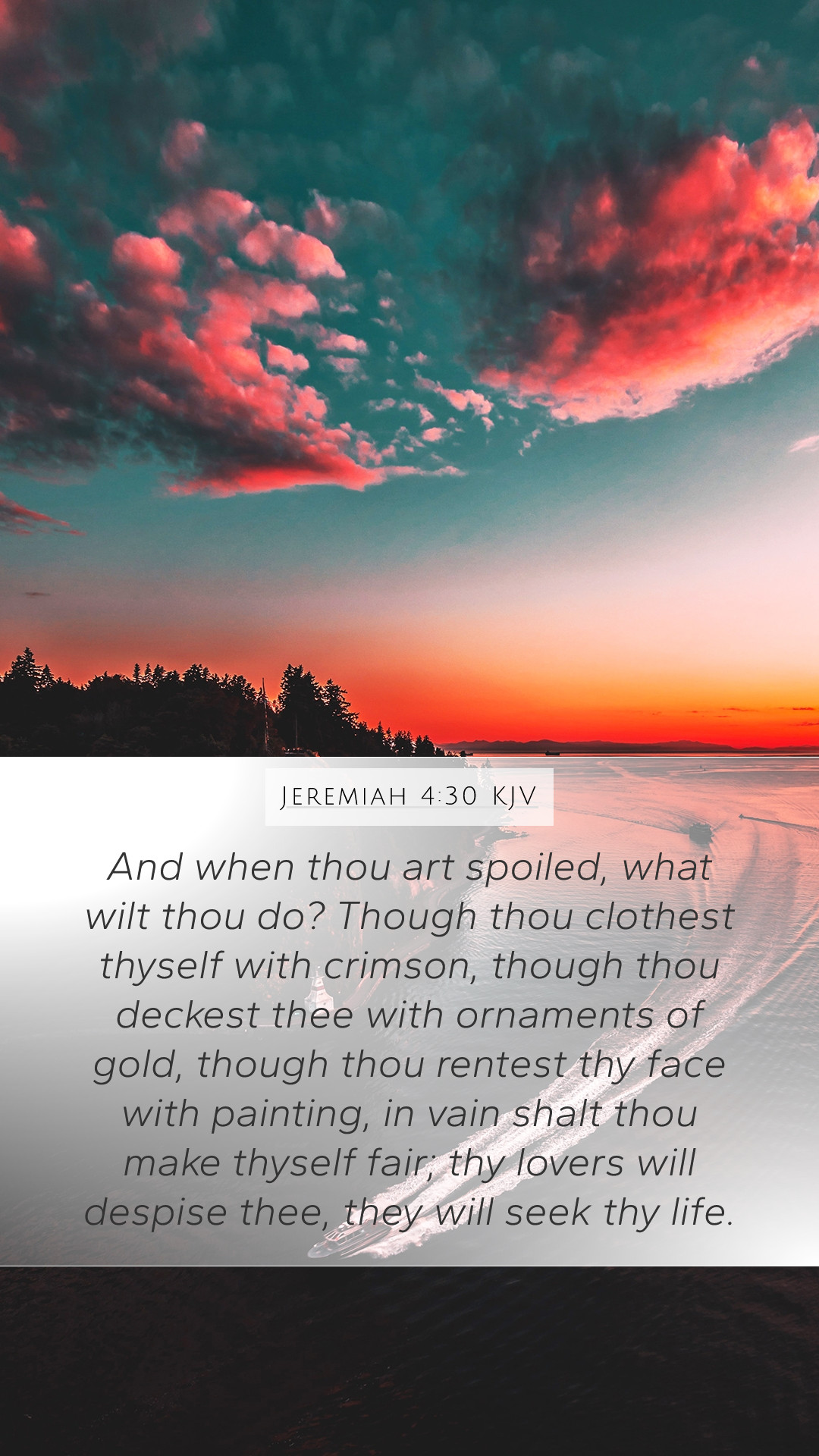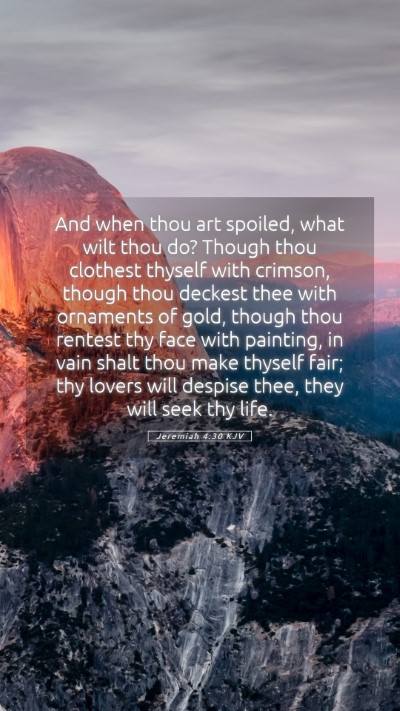Understanding Jeremiah 4:30
Overview: Jeremiah 4:30 states, "And when you are spoiled, what will you do? Though you clothe yourself with crimson, though you decorate yourself with ornaments of gold, though you enlarge your eyes with paint, in vain you will make yourself beautiful; your lovers despise you; they seek your life." This verse encapsulates the desolation and futile attempts at superficial beauty amidst impending judgment.
Bible Verse Meanings
This verse highlights the futility of trying to attract attention or seek solace in worldly things when faced with divine judgment. The imagery used represents not only physical adornment but also spiritual corruption.
Bible Verse Interpretations
- Symbolism of Clothing: The reference to crimson clothing and ornaments of gold serves as a metaphor for Israel's attempts to beautify themselves without genuine repentance. This external beauty is contrasted with their internal decay.
- Meaning of Spoiling: The term "spoiled" signifies a state of being stripped of value and beauty due to sin. It reflects the destruction that results from turning away from God.
- The Role of Lovers: The mention of "lovers" represents foreign nations and false idols that Israel relied upon. Their eventual rejection of Israel serves as a reminder of the unfaithfulness demonstrated by the people of God.
Bible Verse Understanding
Understanding Jeremiah 4:30 requires a look into the historical context of Israel during Jeremiah's time. The people were facing impending doom due to their disobedience, and this verse encapsulates their delusion in thinking that outward appearances could save them.
Bible Verse Explanations
The power of this verse lies in its vivid imagery that shows the contrast between earthly assurances and spiritual reality. It serves as a wake-up call for readers to reflect on their own lives and the futility of superficiality.
Bible Verse Commentary
Matthew Henry: He emphasizes that despite the adornments and efforts to gain favor, Israel's predicament is dire because their hearts are far from God. True beauty is internal and cannot be faked.
Albert Barnes: His commentary notes the hopelessness of the situation; the people attempt to dress up their despair instead of addressing the root cause of their spiritual decline.
Adam Clarke: Clarke points to the symbolism of the adornments, illustrating that beauty in sin and disobedience is ultimately repulsive to God, just as it was to the nations who would turn against Israel.
Scripture Analysis
This verse captures the heart of biblical exegesis by inviting the reader to unpack layers of meaning from both the text and the applied historical context. It raises questions about the depth of true beauty and how often people substitute outward appearances for inner spirituality.
Bible Study Insights
For Bible study groups seeking to understand this verse, discussions could revolve around the following themes:
- True beauty vs. superficial beauty
- The consequences of turning away from God
- The symbolism of 'lovers' in our lives
Cross References
- Isaiah 3:18-23 - Descriptions of superficial adornments and their futility.
- Hosea 2:5-7 - Israel's infidelity and the consequences of their actions.
- Ezekiel 16:15-17 - The metaphor of Israel as an unfaithful bride.
Application of the Verse
This verse serves as a poignant reminder for modern believers about the importance of inner authenticity over outward appearances. It challenges us to assess our lives, our priorities, and the sources we rely on for identity and security.
Conclusion
In understanding Jeremiah 4:30, we find a powerful message that echoes throughout Scripture: true beauty comes from a sincere heart devoted to God. In the face of life's challenges, we must remember that superficial attempts at security or approval will ultimately lead us to disappointment, as they cannot withstand the tests of time or judgment.


